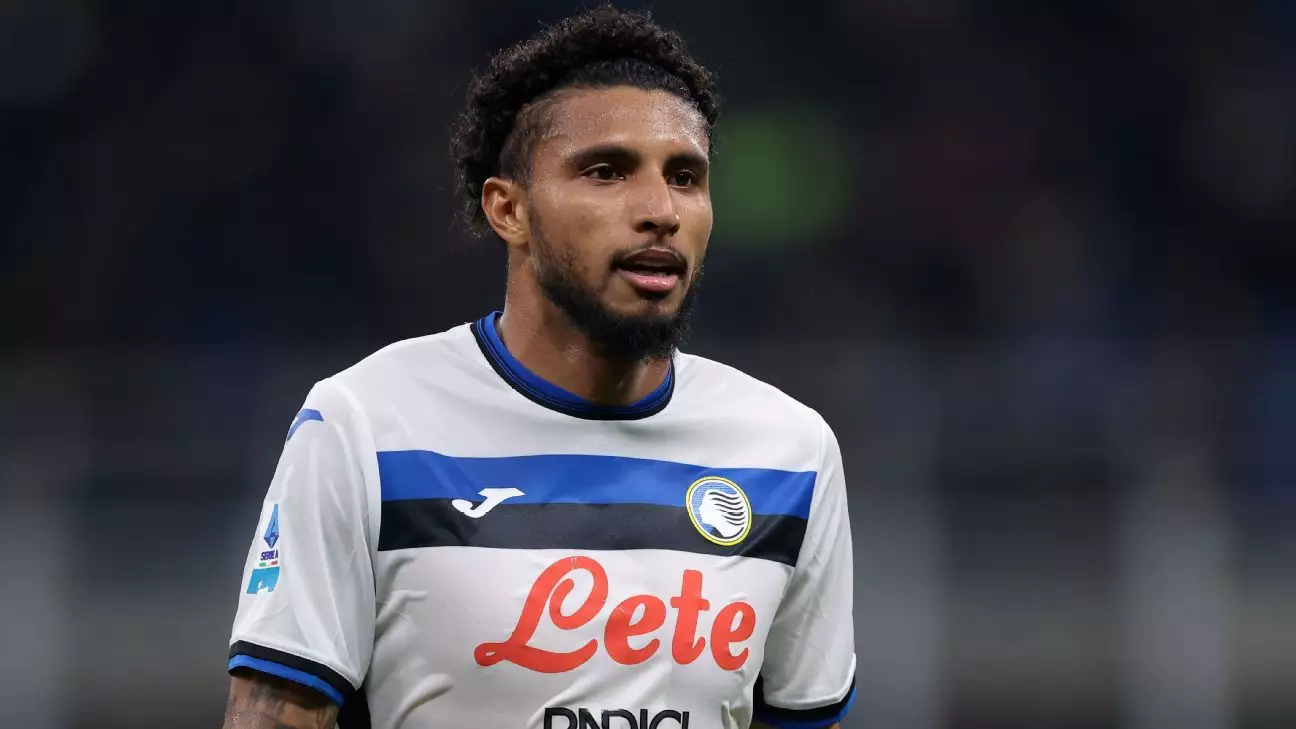As the world of football continues to evolve, transfer rumors create waves of speculation among fans and analysts alike. The upcoming transfer window promises to be a transformative one, particularly for clubs like Manchester United, who are actively searching for talent to bolster their squad. At the forefront of their ambitions is Atalanta’s midfielder Éderson, a player who has become emblematic of the modern attacking midfielder’s role. With a reported interest in reinforcing their midfield, the Red Devils are thinking strategically about their future, especially with uncertainties surrounding veteran Casemiro’s career aspirations and fitness.
Éderson, at just 25, is regarded as a player with immense potential—his ability to maneuver between attacking and defensive duties gives any team a vital edge. The competition for his signature is expected to be fierce, with Manchester City also keeping a close eye on the situation. This scenario showcases a broader trend in the game where elite clubs clamor for advanced midfielders capable of dictating the pace and style of play. The need for dynamic playmakers is becoming more discernible, as teams seek to adapt to the ever-fast-paced nature of modern football.
Juventus’ Quest: Chasing Replacement Talent
Meanwhile, Juventus is also under pressure to reshape their squad amidst rumors of a major overhaul in their attacking department. Striker Dušan Vlahović, who was once a cornerstone of their front line, appears to be on borrowed time at the club with whispers of his departure. In light of this, Rasmus Højlund of Manchester United has emerged as a prime candidate to fill Vlahović’s boots. The Bianconeri are not just aiming to replace the Serbian but are undertaking a broader initiative to revamp their attacking options in response to what has been a rather disappointing season.
Højlund’s profile fits well with Juventus’ desire for a versatile and powerful forward who can lead the line and score goals consistently. The dynamics of club football are shifting—the dependence on a singular star player is declining, as teams are aiming for greater balance and adaptability. With clubs like Wolverhampton Wanderers’ Matheus Cunha also on their radar, it seems Juventus is in a race against time to secure talents who can invigorate their rather stagnant offensive output. The club’s fifth-place position in Serie A underscores the urgency of this initiative; they risk losing out on the top-tier competitions if they do not act swiftly.
Manchester City’s Aspirations: The Pursuit of Future Stars
In contrast to the turmoil surrounding some clubs, Manchester City appears to be diving headfirst into a proactive strategy, targeting young talent, such as Paris Saint-Germain’s Désiré Doué. With an impressive track record in youth competitions, the 19-year-old winger is a tantalizing prospect that could add flair and creativity to City’s already potent attack. Pep Guardiola’s track record of developing young talent makes this rumored interest all the more compelling. His tenure is characterized by a commitment to fostering emerging players, ensuring longevity in success through calculated investments.
However, PSG’s valuation of Doué at around €100 million poses a significant hurdle. It reflects a broader reality in modern football—the increasing financial might of clubs leads to inflated player prices that may stymie transfer negotiations. This dance of demand and supply encapsulates the tension that clubs face as they navigate the dual challenge of strengthening their squads while adhering to budgetary constraints.
A Broader Impact: Changing Landscape of Defense
The defensive side of the game is also seeing a shift with emerging talents like PSG’s youth center-back Axel Tape alluring interest from clubs such as Bayer Leverkusen and Tottenham Hotspur. His inclusion on shopping lists from diverse leagues indicates a growing recognition of the significance of developing a robust defensive unit. Clubs are increasingly aware that successful campaigns are built on solid defenses, leading to interest in nurturing young talent who can grow into reliable players within their systems.
Each of these transfer rumors points to an underlying trend in European football—a commitment to identifying and nurturing young talent while rethinking traditional squad structures. As clubs like Manchester United, Juventus, and Manchester City diagram their pathways to success, they are shaping football’s future landscape while juggling the demands of instant gratification vs. long-term vision. The forthcoming transfer window might not only redefine team compositions but could very well lay the groundwork for the next generation of football legends.

